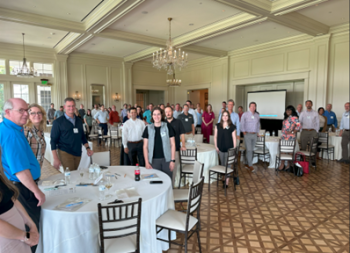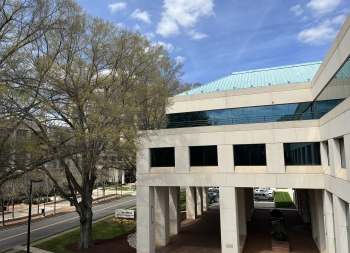SC Supreme Court Provides Framework for Contesting Coverage of Construction Defect Jury Verdicts in Declaratory Judgment Actions
In Ex Parte: Builders Mutual (In Re: Palmetto Pointe v. Island Pointe), Opinion No. 27970 (May 13, 2020), the South Carolina Supreme Court held Insurers did not have a right to intervene in a construction defect action for the limited purpose of participating in the preparation of the verdict form to allocate damages, finding the proper method of contesting coverage of the jury verdict is through a subsequent declaratory judgment action. The parties can consent to a framework for allocating damages, subject to court approval. Or, the parties can proceed with a declaratory judgment action pursuant to the following framework: 1) the primary source of evidence is the transcript of the merits hearing; and 2) the trier of fact will then make a determination, allocating what portion of the verdict constitutes covered and non-covered damages on a percentage basis.
In the underlying action, The Association for Palmetto Pointe became aware of damage to the buildings at Palmetto Pointe and filed a construction defect action against the various contractors and subcontractors. The contractors each had applicable CGL policies with their respective Insurers. Pursuant to their policies, the Insurers provided a defense, subject to a reservation of rights to contest whether the damages awarded were covered. At the end of discovery, the Insurers made a motion to intervene for the limited purpose of participating in the preparation of a verdict form to allocate which portions of the verdict were covered damages. The trial court denied the Insurers’ motions. The Insurers subsequently appealed.
The Court held Insurers are not entitled to intervene as a matter of right finding they do not have a direct interest in the construction defect litigation as required under Rule 24(a)(2). The Court further held the Insurers did not have a right to permissive intervention due to delay and prejudice to the Association, finding special jury interrogatories and verdict forms would require the Association to overcome a heightened burden of itemizing its damages rather than requesting and receiving a general verdict against all Insureds. The Court also addressed conflict of interest issues that could arise among counsel provided by the Insurers. The Court noted Insurers do have a right to a determination of which portion of damages are covered under CGL policies in a subsequent declaratory judgment action.
The Court modified its decision in Auto-Owners Insurance Co. v. Newman, 385 S.C. 187, 684 S.E.2d 541 (2009), noting, “It was not the intent in Newman to categorically foreclose a subsequent declaratory judgment action to resolve a coverage dispute. To the extent Newman may be read to foreclose an insurance company’s subsequent declaratory judgment action to resolve the coverage dispute, we modify Newman accordingly.” The Court further clarified its decision in Harleysville Group Insurance v. Heritage Communities, Inc., 420 S.C. 321, 803 S.E.2d 288 (2017), “neither mandates intervention in the underlying construction defect action nor forecloses a declaratory judgment action to resolve a coverage dispute.”
Analyzing how a subsequent declaratory judgment action should be tried, the Court held, under Sims v. Nationwide Mutual Insurance Co., 247 S.C. 82, 145 S.E.2d 523 (1965), “the Insurers and Insureds are not precluded from introducing evidence as to which damages are covered (or excluded from coverage) by the CGL policies.” However, the Court noted the parties would be bound by the total amount of any jury verdict.
The Court held the parties could agree on a framework for allocating damages, subject to court approval. The Court then supplied a default framework to handle the subsequent declaratory judgment action. Under this framework, the primary source of evidence is the transcript of the merits hearing. Additional evidence related to coverage, like expert testimony, may be presented at the discretion of the judge. The trier of fact will then make a determination allocating what portion of the verdict constitutes covered and non-covered damages on a percentage basis.
We will continue to assess how courts proceed with this new framework. If you have any questions or concerns as to how this decision affects your cases and claims, please reach out to us.
The information published in Hedrick Gardner Alerts is general in nature and not intended to take the place of legal advice on any particular matter. © 2020 Hedrick Gardner Kincheloe & Garofalo LLP




